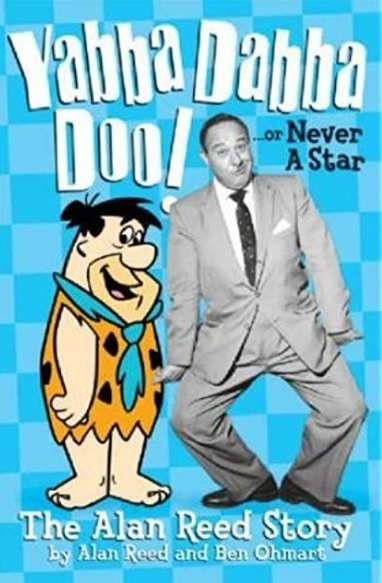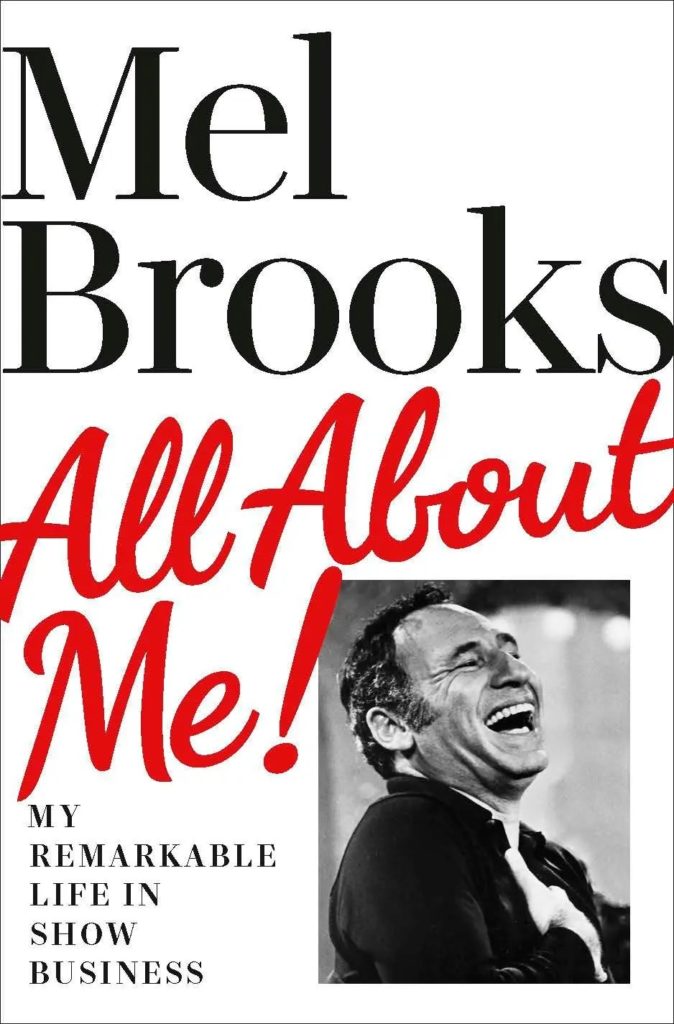Starting to put a dent in my “unread books” pile. If Facebook memes are to be believed, I am far from alone in the habit of gathering books faster than I can read them. But I do like to read them…sometimes it just takes a while.

“Yabba Dabba Doo! …or Never A Star” is about a third of an autobiography of Alan Reed, the talented actor who made hundreds of appearances in film, radio and television. Why a third? Well, shortly before his death Reed had begun work on his life story but sadly only wrote one or two full chapters, along with brief summaries of what the remaining chapters would cover. Co-author Ben Ohmart fills in the gaps with previously published interviews, transcribed talk show appearances, etc.
Alan Reed (born Herbert Theodore Bergman) attended the American Academy of Dramatic Arts…took any part he could get on Broadway, played some vaudeville gigs, worked in the Catskills, and eventually found success in radio, portraying characters on a variety of series including Fred Allen’s weekly show. A fascinating appendix in the book features several letters Allen wrote to Reed during times when his series was on hiatus. Fred Allen wrote great letters, and generally didn’t seem to think much of radio…and even less of television. But when radio comedies and dramas died out Alan Reed transitioned smoothly in TV roles of every stripe. These, in addition to his character roles in films, are the source of the “Never A Star” subtitle.
However, Alan Reed did play one of the most well-known characters in entertainment history! And the book does offer some neat info on Reed’s years voicing Fred Flintstone–first for the original 6-season run on ABC and for a decade thereafter in commercials, Saturday morning sequel series, and a feature film. I had known that “Yabba-Dabba-Doo” was an ad lib by Reed but was not aware of the forethought that went into it. Reed spent days wandering around his house hollering random strings of gibberish (“Yahoo-del-doodle”, “Doodle-de-dough-dough”, “Dabble-de-roo-roo”) until “Yabba”, “Dabba” and “Doo” found each other.
For the Flintstones material, and for the unique insight into Alan Reed’s youth and radio days, it’s a good if slim read. There’s an appendix listing every radio, film and TV appearance…does anybody read these things? It seems like padding. One more random thing I learned from this book: Alan Reed spent his final years without a bladder. It was cancerous and had to be removed. I didn’t know you could remove the bladder. I’m sparing you the additional details.

The best thing I can say about “All About Me!” by Mel Brooks is that about a third of the way through reading it I started to think it would be cool to watch some Mel Brooks movies. Two thirds through and I really, really wanted to watch some Mel Brooks movies. I finished the book tonight and I would rather watch Mel Brooks movies than write a blog about this book! But first things first.
Mel Brooks is a genius. How is it that one man can be a brilliant sketch comedy writer, an improv superpower as “The 2,000 Year Old Man”, a screenwriter, director, songwriter, and comedic actor? Oh, and rapper. And producer of movies like “The Elephant Man” and “The Fly.” The mind boggles.
“All About Me!” is one of those books where you hear the author saying the words. Mel Brooks tells you about his childhood in Brooklyn…his desire to entertain from a very young age…his time as a solder in World War II….his glory years writing for Sid Caesar and Imogene Coca on “Your Show Of Shows”…his challenging years after Caesar left the air, doing guest shots on variety shows and taking money under the table at a restaurant from his beloved wife-to-be Anne Bancroft. (He took her $20, grandly handed it to the waiter and said “Keep the change!”, after which Bancroft smacked him on the head and suggested he not be so generous with her money.)
The stories become more and more familiar as the narrative plows further into Brooks’ career. Familiar tales about “Blazing Saddles”, “Young Frankenstein”, “Silent Movie” and the rest. Yeah, it tends to be “greatest hits” stuff for long stretches but honestly, they’re classic stories because they’re funny as hell and Mel Brooks is a great storyteller.
The chapter on “The Producers” as a Broadway musical offered some in-depth information about the process of turning a movie into a stage musical, and there’s a wealth of enjoyable stories about the people and places Brooks has encountered over his long life. Perhaps the biggest surprise is how briefly the death of his beloved wife Anne Bancroft is addressed. She plays a huge role in the story from the moment they first meet, and her death is summarized in less than half a paragraph.
I could guess that losing her is so painful for Brooks that he could not bring himself to devote any more time to look back at it. It’s also possible that he wanted to maintain the light tone of the majority of the book.
“All About Me!” is loaded with laughs, and is a wonderful look at the life and times of Melvin Kaminsky. I need to dig up my Mel Brooks movie box set.
